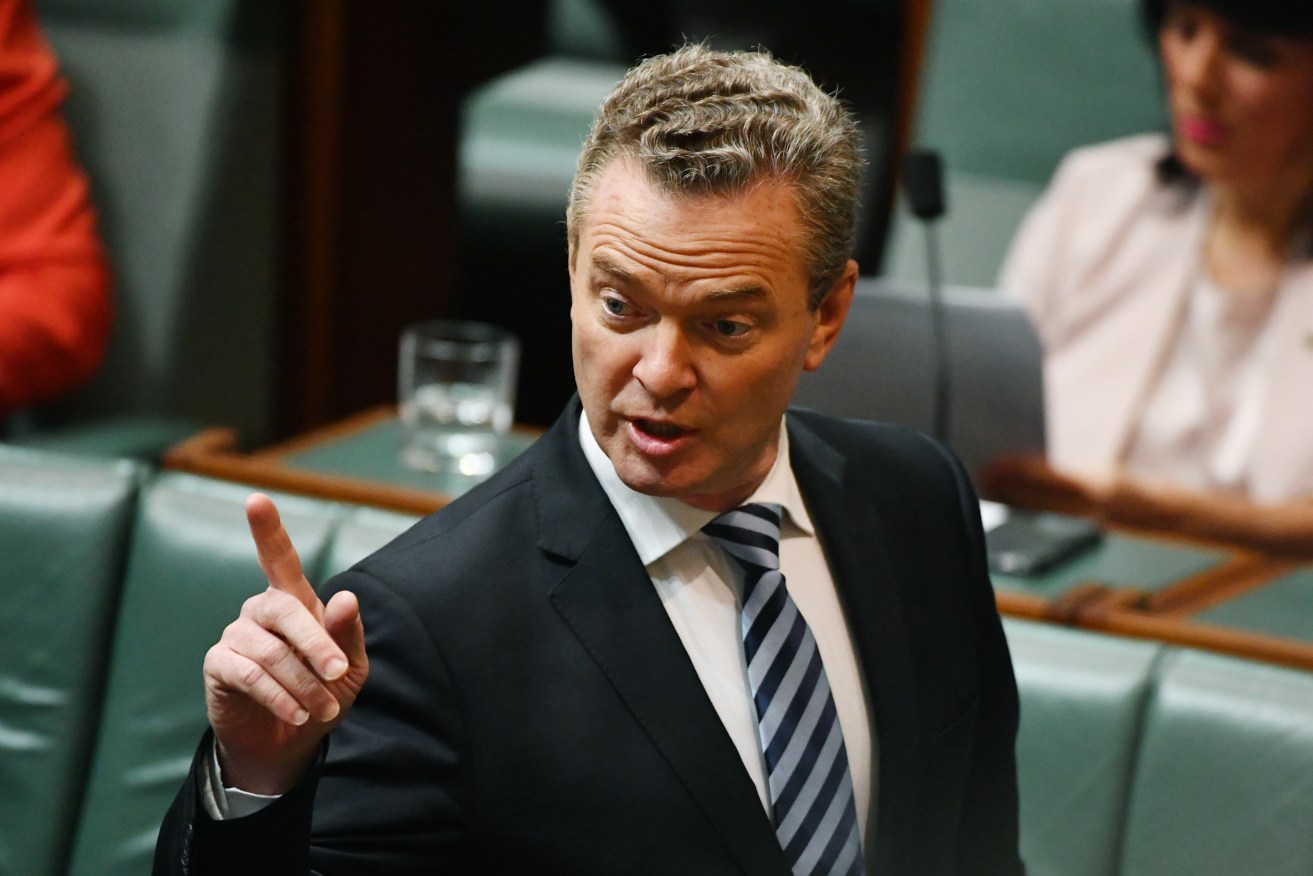Pyne’s self-indulgence damages Turnbull
Christopher Pyne’s self-indulgence damages Malcolm Turnbull because it reinforces the fears of the party’s right-wing malcontents, argues Michelle Grattan.

Christopher Pyne. Photo: AAP/Mick Tsikas
Sometimes it’s hard to believe Christopher Pyne is actually a politician, let alone a cabinet minister. Often he seems a Peter Pan figure who treats federal politics like it was a university campus.
To anybody who knows him, it’s unsurprising that at the moderates’ “Black Hand” knees-up during the Liberal Party federal council he boasted that the faction was “in the winner’s circle”.
“Two years ago … Malcolm Turnbull was the communications minister and now he’s the prime minister,” he said. “Our fortunes are pretty good at the moment”, with moderates holding very senior ministerial positions in a Turnbull government.
“Now there was a time when people said it wouldn’t happen, but George [Brandis] and I kept the faith. We voted for Malcolm Turnbull in every ballot he’s ever been in.”
There was more. “We have to deliver a couple of things and one of those we’ve got to deliver before too long is marriage equality … we’re going to get it. I think it might even be sooner than everyone thinks. And your friends in Canberra are working on that outcome.”
Pyne, among factional mates and buoyant, forgot the basic lesson of contemporary politics: assume everything will get out. Especially if you say it to hundreds of people late at night in a bar.
Particularly unfortunate for Pyne, his comments not only leaked, but in the form of a tape, not conducive to even implausible deniability.
The fact is that Turnbull tacked toward the right to get the party leadership – and to consolidate it, now he’s tacking in the other direction to try to revive his diminished electoral fortunes.
Pyne’s hubris has created trouble for Malcolm Turnbull at two levels. First there is the same-sex marriage issue itself, which is highly emotive within the Liberal Party. Turnbull immediately declared “our policy [for a plebiscite] is clear, we have no plans to change it full stop”; Pyne tweeted likewise. The conservatives won’t believe them.
Recently there were suggestions that Liberals wanting a parliamentary vote this term would likely raise the matter in the spring session, although there have been fears about the political implications. Talk about a postal vote, which would be absurd, floats around. Many in the party worry about what policy can be taken to the election, believing it can’t be just another plebiscite promise.
Any move to switch policy on this issue has the capacity to blow up Turnbull’s leadership.
More broadly, Pyne’s self-indulgence is damaging to Turnbull because it reinforces everything the party’s malcontents on the right believe.
The right sees Turnbull taking not merely centrist, but leftist, positions on a range of issues. The most recent is schools funding; now he is considering what the right strongly opposes – a clean energy target. And here’s Pyne fuelling its arguments by celebrating the power of moderate members of cabinet.
All of this is somewhat ironic. A little while ago, the prevailing criticism of Turnbull was that he’d capitulated to the conservatives.
The fact is that Turnbull tacked toward the right to get the party leadership – and to consolidate it, now he’s tacking in the other direction to try to revive his diminished electoral fortunes.
Predictably, the Pyne action produced a reaction from Tony Abbott, who (conveniently) had his spot on 2GB with Ray Hadley on Monday. Abbott warned against dumping the plebiscite policy, and took from Pyne’s comments that he had been disloyal while he was a member of Abbott’s cabinet.
When Hadley accused Pyne of failing to have the courage, after the leak, to come out and say he believed there should be a parliamentary vote on same-sex marriage, Abbott put the boot in: “This is one of the reasons why the public turn off politicians – because we don’t tell them what we think. And it looks like one of our number has been caught out. You’ve got to be fair dinkum with the Australian people and it looks like that’s not been true of Christopher.”
Once again, the Liberal divisions are on display and amplified.
The danger for Turnbull is that every discontent bleeds into the right’s wider criticism of him.
Take the Catholic backlash against the just-passed schools package. This might be manageable if it was just a lobby – albeit a very powerful one – outside parliament. But the Catholics’ complaints are being taken up by conservative Liberals and columnists, adding to other gripes against Turnbull.
What Turnbull has done on schools is seen by them as further evidence that he is betraying the party’s principles – that he’s not a true Liberal.
The dots of the various grievances against Turnbull become joined, and that increases the difficulty he will have in landing future policy.
Dissatisfaction with his schools policy and now suspicion that he or his allies might try to pull a swifty on same-sex marriage will make the right even harder to handle on energy policy, which is the next big challenge the government faces. The Finkel report’s clean energy target faced an uphill battle in the partyroom from the start; the forces aligned against it are getting stronger.
It might seem an extremely long bow to see any connection between issues as diverse as same-sex marriage, Gonski, and Finkel. But if a significant section of a party lacks goodwill toward the leader, and has little respect for his authority, and its views are amplified by strong voices in the commentariat, normal political hurdles can become near insurmountable.
Yet if in a few months he was forced to capitulate in the battle to get a credible energy policy, that would be a disaster for Turnbull and his government.
Michelle Grattan is a Professorial Fellow at the University of Canberra.
This article was originally published on The Conversation. Read the original article.




